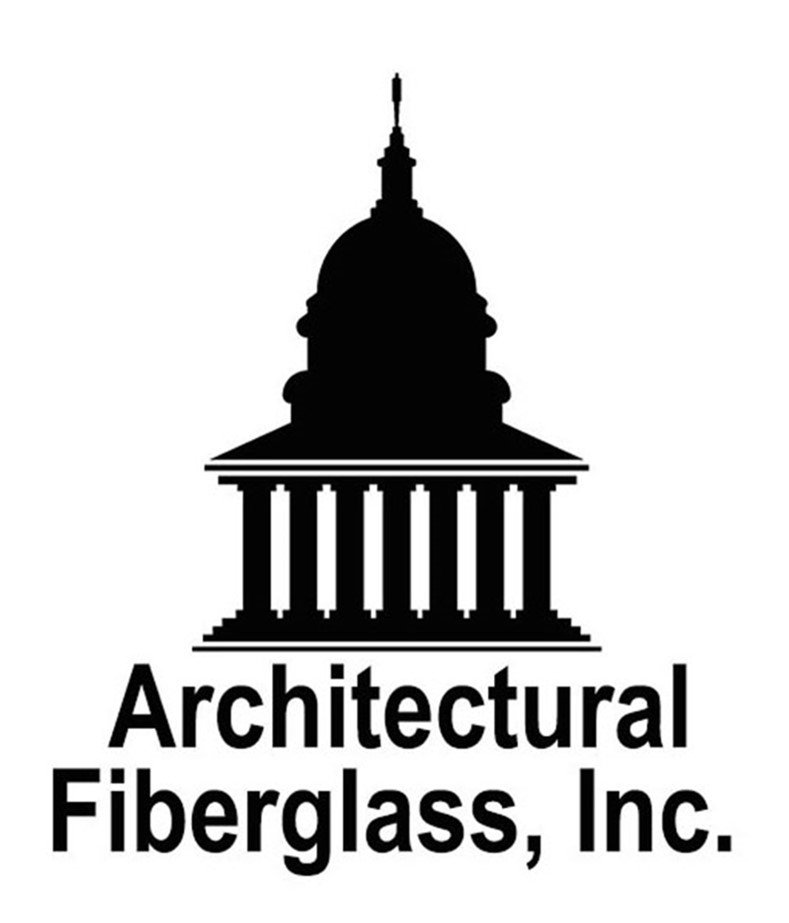Architectural Fiberglass (FRP) Cupolas
Fiberglass Cupolas
For cupola and finial drawings, visit our download page.
A cupola is an ornamental dome-shaped structure placed in a prominent position on the top of a larger roof or dome. In some cases, the entire main roof of a tower or spire can be a cupola. More frequently, however, the cupola is a smaller structure, which sets on top of the main roof. A finial also referred to as a spire is a decorative feature that is typically employed decoratively to emphasize a cupola, dome, or roof structure.
Architectural Fiberglass, Inc. manufactures custom fiberglass cupolas and finials for the restoration, reproduction, and new construction industries. In addition, we have a catalog of standard cupolas and finials that can be adapted to almost any roof structure. We can also reproduce existing cupolas and finials or manufacture new fiberglass cupola designs.
A majority of our cupola projects have involved removing badly deteriorated or unattractive cupola structures and replacing them with identical custom fiberglass cupolas. The durability and longevity of fiberglass far exceeds the life expectancy of cupolas manufactured from steel, aluminum, copper, wood, and other popular cupola materials.
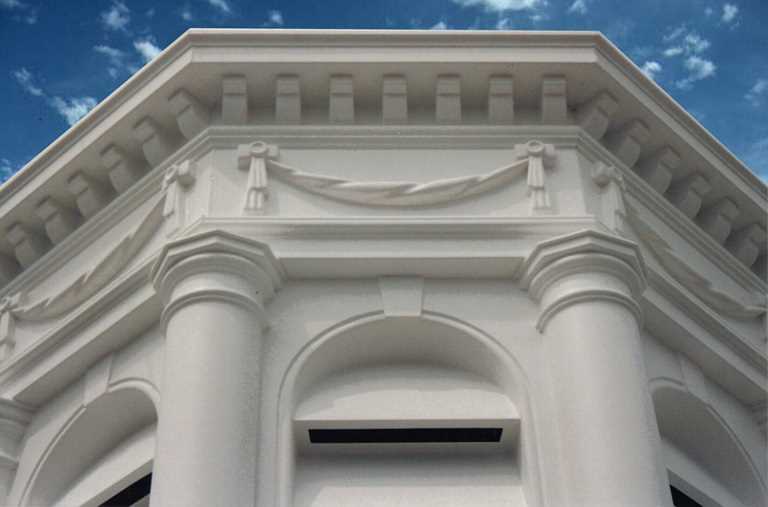
Fiberglass Cupola and Finial Design Flexibility
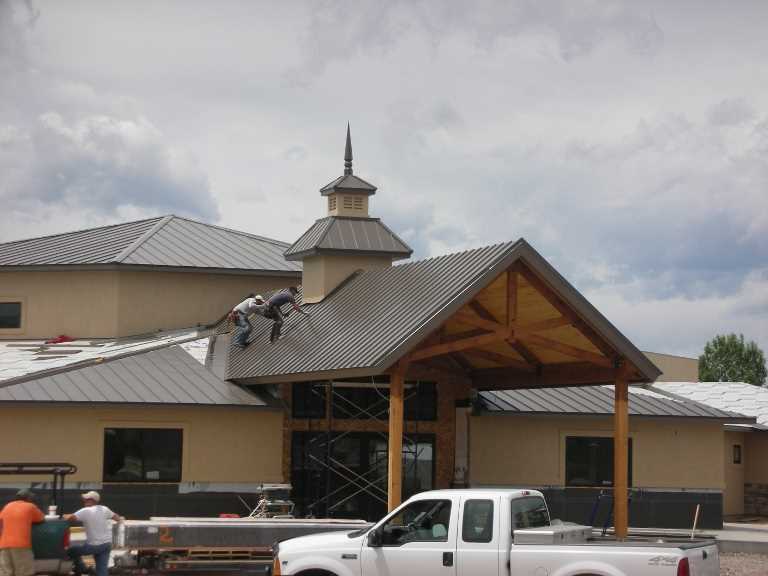
Fiberglass Cupolas and finials have the advantage over other materials because they can be molded into complex shapes. These shapes can be curved, corrugated, ribbed, or contoured in a variety of ways, with varying thickness. Fiberglass cupolas are usually a fraction of the weight of traditional materials. This is advantageous when an existing supporting structure has deteriorated over time and can no longer support the original cupola. New construction projects can also be engineered with far less roof structures when supporting fiberglass cupolas. Cupolas and finials can replicate any traditional building material including, gold, wood, copper, stainless steel, terra cotta, marble, granite, and stone. Our proprietary 22 Karat Gold Leaf finish is amongst the more popular finishes that we have incorporated in our cupolas and finials. New copper and weathered copper finishes are also popular. Fiberglass is a feasible and sustainable alternative to cost prohibitive traditional materials.
Fiberglass Cupola and Finial Assembly and Installation
Fiberglass cupolas are assembled in our facility and sometimes shipped as one unit. Larger cupolas are pre-assembled, numbered, and labeled in our facility, to facilitate installation at the jobsite. After the cupola is assembled it can be lifted with a crane as one unit. Fiberglass cupolas can be manufactured with the correct pitch to fit most roof structures. When placed on the building structure the cupola only needs to be bolted down to the existing structure. Our cupolas are manufactured with internal bolting flanges meaning the assembly hardware to assemble each cupola section is on the inside of the cupola. Other manufacturers prefer to have external flanges that are glued together and are visible on the outside of a cupola. These external flanges are somewhat unattractive and also have the potential to separate once installed.
Fiberglass finials are manufactured usually with a threaded or steel rod coming from the bottom for attachment to the existing structure or fiberglass cupola. The bottom of the finial is usually modified to fit the cupola or any other roof structure. Lighting protection can also be incorporated in fiberglass finials. General contract workers and carpenters are frequently capable of assembling and installing our fiberglass cupolas and finials.
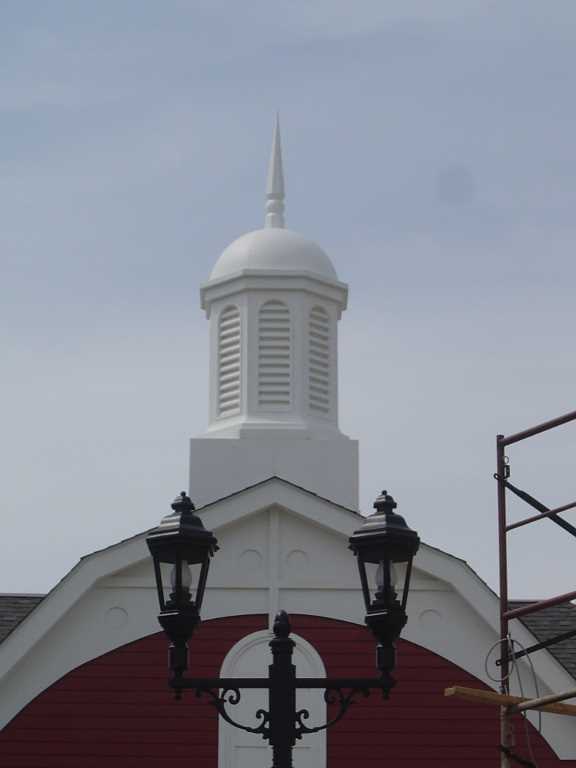
Origins of Cupolas
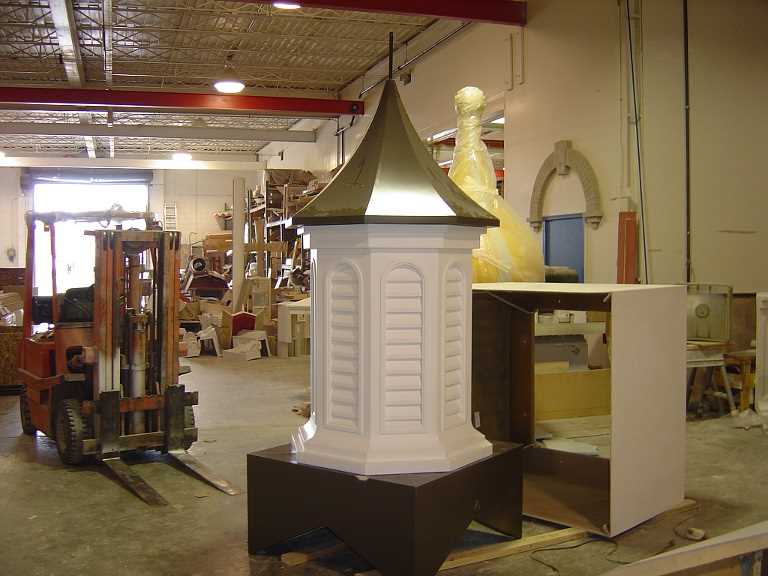
Our cupolas and finials gallery





















Download Drawings and Specifications

Fiberglass Cupolas
(1.6 MB)

Fiberglass Cupola Details
(63 KB)

Fiberglass Cupolas
(1.8 MB)

Fiberglass Cupola Details
(63 KB)

Fiberglass Cupolas
(1.6 MB)

Fiberglass Cupola Details
(63 KB)

Fiberglass Cupolas
(1.8 MB)

Fiberglass Cupola Details
(63 KB)

Fiberglass Finials/Urns
(678 KB)

Fiberglass Finials/Urns
(625 KB)





